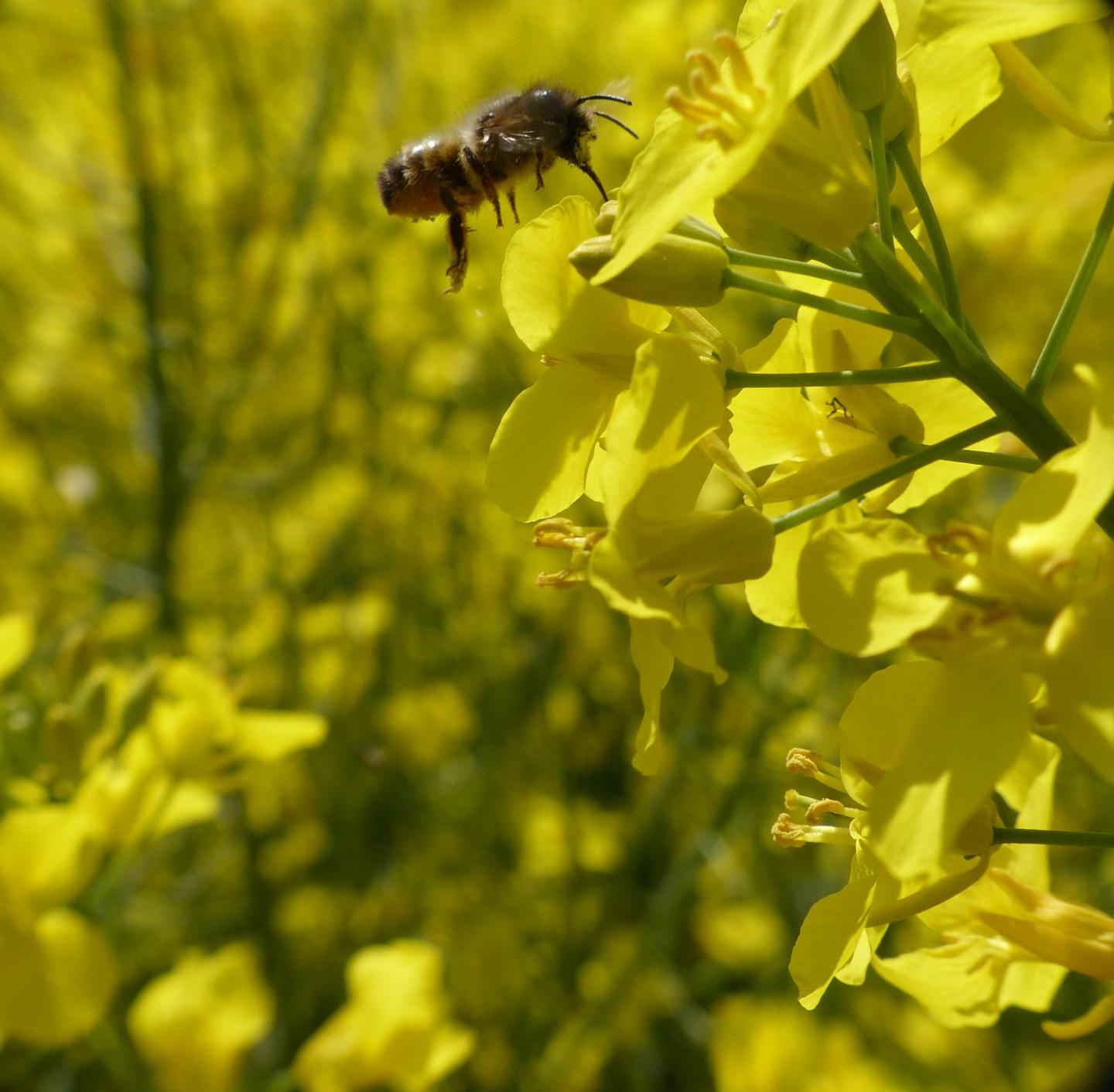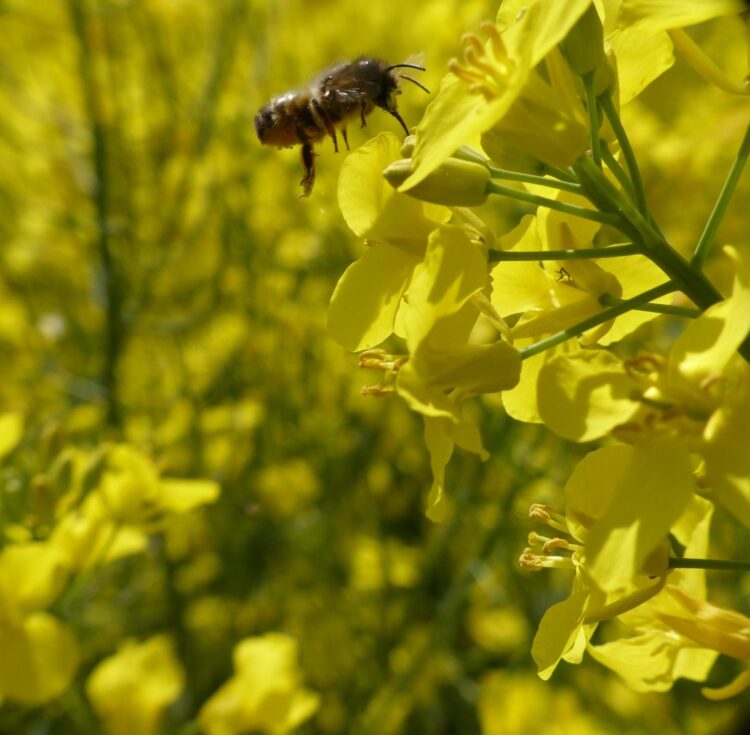Research team investigates influence of different mass-flowering crops on pollinators

Credit: N Beyer
Mass-flowering crops such as oilseed rape or faba bean (also known as broad bean) provide valuable sources of food for bees, which, in turn, contribute to the pollination of both the crops and nearby wild plants when they visit. But not every arable crop that produces flowers is visited by the same bees. A team from the University of Göttingen and the Julius Kühn Institute (JKI) in Braunschweig has investigated how the habitat diversity of the agricultural landscape and the cultivation of different mass-flowering crops affect wild bees. The research shows that diverse agricultural landscapes increase the species richness of wild bees. Flowering arable crops with different flower shapes support different wild bee species. The results of the study have been published in Landscape Ecology.
The research team recorded wild bees in flower-rich, semi-natural habitats such as hedgerows and flower strips in a total of 30 different agricultural landscapes, each covering one square kilometre, near Göttingen, Itzehoe and Leipzig. Researchers counted the number of bees along standardised sections and used a hand net to catch them and identify the species. The landscapes used in the study differed in their diversity and in the proportion of land covered by rapeseed and faba beans.
“The shape of the flower is an important criterion for determining which wild bee species will collect nectar from its flowers,” says PhD student Felix Kirsch from the University of Göttingen, who conducted the study as part of his Master’s thesis. “For example, the shape of the flower must fit the bee’s body size and the length of its tongue. Nectar is easily accessible from rapeseed flowers, while the nectar of faba bean is hidden deep inside the flowers.”
“Our study shows that faba beans promote social wild bees, especially long-tongued bumblebees,” explains Dr Doreen Gabriel from the JKI in Braunschweig. A different picture emerged in landscapes with large amounts of oilseed rape: here, the study found that the proportion of solitary wild bees, which often have a smaller body size, was higher. “The cultivation of a certain mass-flowering crop is not sufficient to maintain diverse bee communities, which in turn ensure the pollination success of many flowering arable crops and wild plants,” says first author Nicole Beyer, a postdoctoral researcher in the Functional Agrobiodiversity Department at Göttingen University. The head of the department, Professor Catrin Westphal, concludes: “Our results show convincingly that diverse, flowering arable crops and especially diverse semi-natural habitats in the agricultural landscape are necessary to support a broad range of wild bee species.”
###
Original publication: Beyer, N. et al. Identity of mass-flowering crops moderates functional trait composition of pollinator communities. Landscape Ecology 2021. https:/
Contact:
Nicole Beyer
University of Göttingen
Faculty of Agricultural Sciences – Functional Agrobiodiversity
Grisebachstraße 6, 37077 Göttingen, Germany
Tel: +49 (0)551 39-22312
Email: [email protected]
http://www.
Felix Kirsch
University of Göttingen
Faculty of Agricultural Sciences – Functional Agrobiodiversity
Grisebachstraße 6, 37077 Göttingen, Germany
Tel: +49 (0)551 39-33739
Email: [email protected]
http://www.
Dr Doreen Gabriel
Julius Kühn-Institut (JKI) – Federal Research Centre for Cultivated Plants
Institute for Crop and Soil Science
Bundesallee 58, 38116 Braunschweig, Germany
Tel: +49 (0)531 596-2340
Email: [email protected]
http://www.
Media Contact
Melissa Sollich
[email protected]
Original Source
https:/
Related Journal Article
http://dx.





